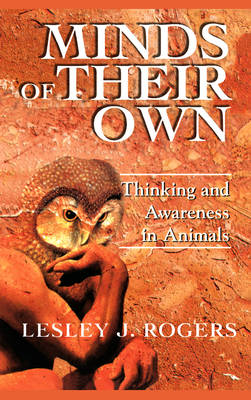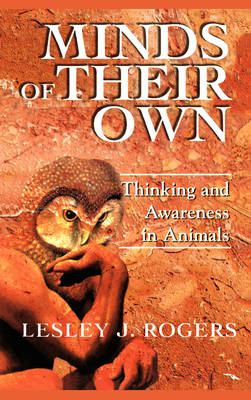
- Afhalen na 1 uur in een winkel met voorraad
- Gratis thuislevering in België vanaf € 30
- Ruim aanbod met 7 miljoen producten
- Afhalen na 1 uur in een winkel met voorraad
- Gratis thuislevering in België vanaf € 30
- Ruim aanbod met 7 miljoen producten
Zoeken
€ 182,45
+ 364 punten
Omschrijving
Do Animals have ideas? Do they experience pain like humans? Do they think about objects that they cannot see? About situations that have occurred in the past? Do they consciously make plans for the future or do they simply react unthinkingly to objects as they appear and situations as they arise? All of these questions have bearing on whether or not animals have consciousness. The advent of computers that ?think? has lead us to consider ?intelligence? in a way we never thought possible a decade ago. But when and how does information processing in the brain become automatic?In Minds of Their Own, Lesley J. Rogers examines the issue of animal thought both sympathetically and critically by looking at the different behavior characteristics of a variety of animals, the evolution of the brain and when consciousness might have evolved. To most people, to be conscious means to be aware of oneself as well as to be aware of others. But does this hold true for animals? The answer may have implications which transcend mere scientific inquiry: if animals are cognizant creatures, what, if any, moral responsibility do humans have to assure their rights? This timely book examines this issue and others by emphasizing comparisons between humans and animals: how we evolved; how we remember; how we learn.
Specificaties
Betrokkenen
- Auteur(s):
- Uitgeverij:
Inhoud
- Aantal bladzijden:
- 224
- Taal:
- Engels
Eigenschappen
- Productcode (EAN):
- 9780367098667
- Verschijningsdatum:
- 13/06/2019
- Uitvoering:
- Hardcover
- Formaat:
- Genaaid
- Afmetingen:
- 203 mm x 127 mm
- Gewicht:
- 566 g

Alleen bij Standaard Boekhandel
+ 364 punten op je klantenkaart van Standaard Boekhandel
Beoordelingen
We publiceren alleen reviews die voldoen aan de voorwaarden voor reviews. Bekijk onze voorwaarden voor reviews.











